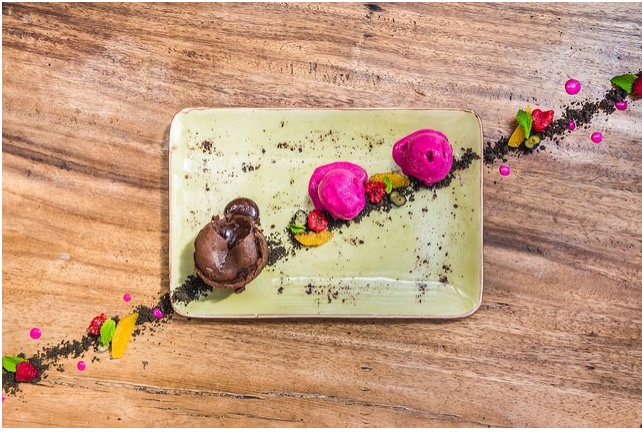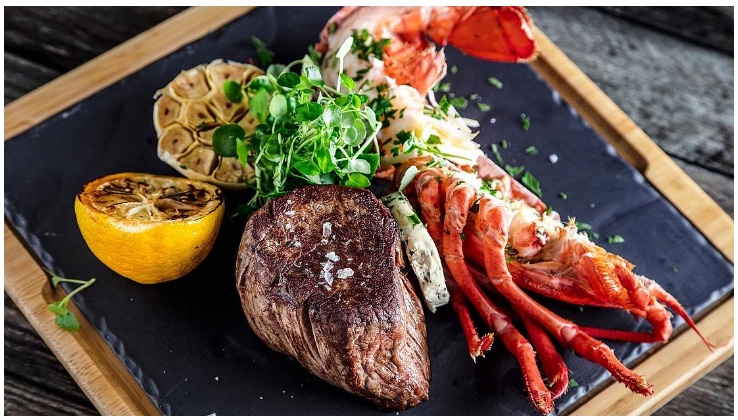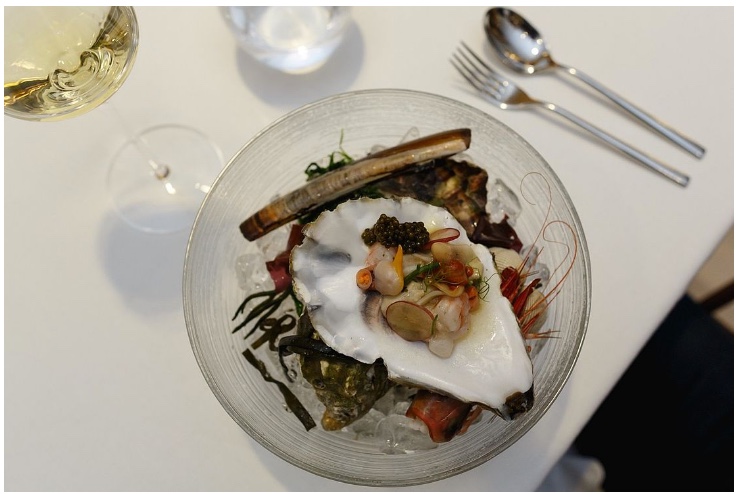The Foodie Factor
Q Lounge at D-Resort Göcek
As eating-centric holidays become the norm, journalist Jo Fernandez outlines ideas on how hotels can cater to the discerning gourmand.
As the world feels increasingly chaotic, the consumer reaction is to become more responsible, whether it’s through healthy eating, or a concern for sustainability. High-Net-Worth-Individuals (HNWI) with an interest in food will naturally gravitate towards luxury hotels with a culinary focus so they need to be wooed in ways that speak to these motivations and they expect them to be addressed with a cherry on top.
HNWIs that prioritise sustainability and social responsibility seek a more immersive, genuine experience. The number of vegans in the UK has risen by 350 percent over the past decade, but even those of us who aren’t technically vegan still choose to eat more plant-based food on regular basis for ethical reasons. Even meat-eating and vegetarian hotel guests connect sustainable lifestyles with wellbeing and wellness, creating demand for more ethically prepared foods. In the future, transparency in the packaging of ingredients that the kitchens use will go further to lure guests with a conscience.

This brings us back to that old chestnut of all things local. What sets today’s luxury hotel apart from the rest isn’t about opulence or obvious glitz – we’re moving away from the idea of luxury equating to dedicated staff for polishing guests’ sunglasses – but the story they tell through connecting with the local environment and community. The boom in food tourism reveals a growing appetite to visit a destination purely to enjoy a unique culinary experience. At the very least, many travellers are keen to sample local dishes and dining out is a way to explore the neighbourhood and connect with locals. In this sense, hotels must compete with the rise of home-share companies such as Airbnb, offering local dining experiences. Today’s foodies need a little extra encouragement to book into a hotel restaurant instead of exploring the local dining scene.
With this competition in mind, hotels must create menus that feature more detailed descriptions of dishes, with phrases such as ‘line-caught’, or ‘locally sourced’ helping to increase perception of the quality of the dish. This is all part of the art of menu engineering, becoming standard practice for successful restaurants around the globe. Savvy restaurateurs know that the most successful menus are carefully and strategically designed, from the ingredients to the graphics, and even employing tactics such as listing the price discretely after the dish description in the same size and font, so the diner’s eyes glide right over it.

And like the supermodels of the food world, these restaurant hotel dishes have to look good. Social media has transformed what, where, and why we eat. Many diners will check a restaurant’s Instagram page before they book a table. As a result, chefs are creating menu items that are as photogenic as possible in order to attract more customers and encourage social sharing. It’s gone so far that some high-profile chefs have banned diners from photographing their meal before they eat it.
But while it’s important for hotels to use social media to promote their own visually appealing dishes and attract more food-obsessed guests, they must now go beyond posting glossy photos of perfect dishes and show where their ingredients come from. Chefs will increasingly share stories about the provenance of their ingredients on social media, as they visit an organic lamb farmer or pick lettuce from their kitchen garden, all of which serves to help the diner feel more confident in the quality of the produce and welfare of the animals.

Finally, with the rise of the well-heeled single traveller seeking luxury experiences, hotel restaurants will need to target that lucrative audience by waiving single supplements and hosting communal tables. This needs to be done in a thoughtful way that will encourage solo travellers to feel comfortable sharing meals with fellow hotel guests. If they, in turn, feel inspired to share their experience on social media you’ll be ‘feeding’ your own social media marketing. So the practice of banning diners from photographing their food for Instagram may well go against the grain…

